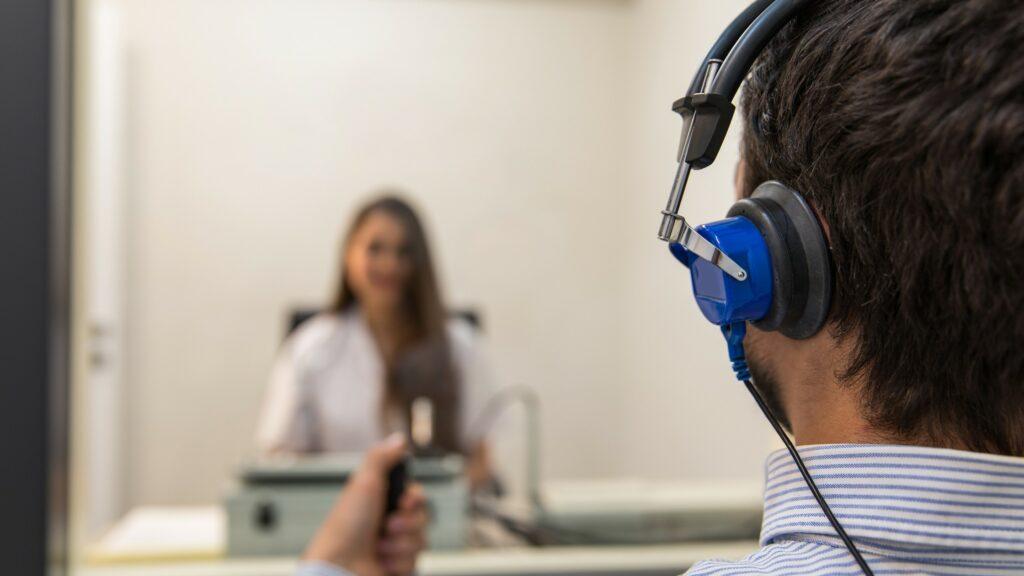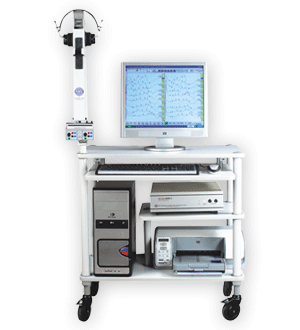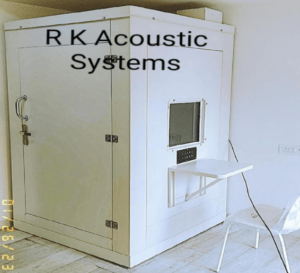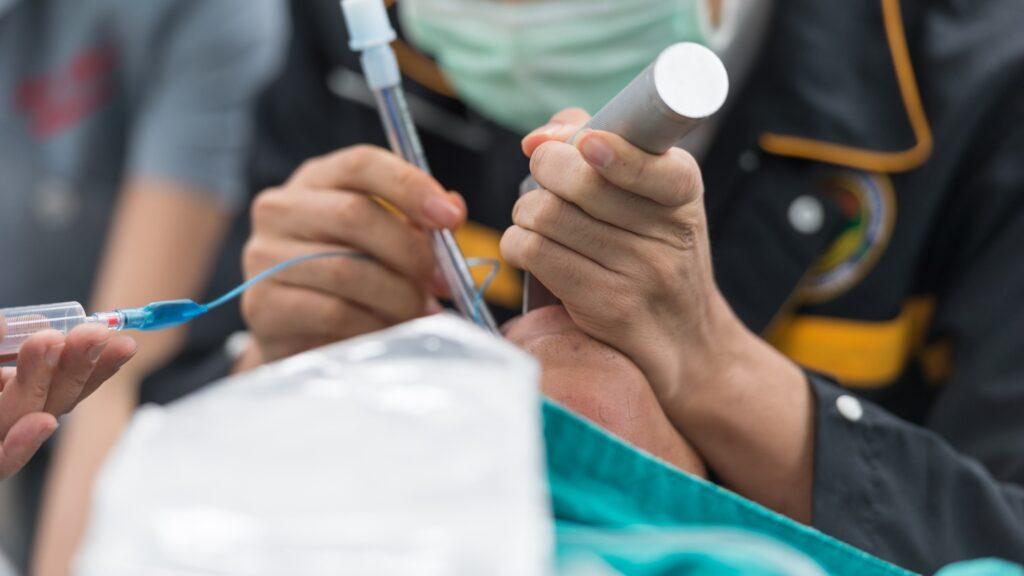A common ailment that affects millions of people globally is hearing loss. To accurately diagnose and assess hearing impairments, medical professionals rely on a specialized device called an Audiometer. In this blog, we will delve into the fascinating world of audiometers and unravel their importance in the field of audiology.
What Are Audiometers?
Audiometers are electronic devices designed to measure an individual’s hearing abilities. They generate precise audio signals at different frequencies and intensities, allowing audiologists to evaluate the audibility thresholds and sensitivity of a person’s hearing.
Why use audiometry?
Identification, diagnosis, and quantification of hearing loss are the main objectives of audiometry. By measuring an individual’s hearing thresholds, audiologists can determine the extent and nature of the hearing impairment, enabling them to recommend appropriate treatment options or interventions.
Types of Audiometers
- Diagnostic Audiometers: Delve into the world of diagnostic audiometers, sophisticated devices equipped with advanced features and multiple testing capabilities. Discover how they aid audiologists in accurately assessing and diagnosing various types of hearing disorders.
- Screening Audiometers: Explore the role of screening audiometers in the early detection of hearing loss. Learn how these efficient devices contribute to preventive healthcare practices, allowing for timely intervention and improved patient outcomes.
- Digital Audiometers: Unveil the cutting-edge technology behind digital audiometers. Explore their benefits, including enhanced precision, intuitive user interfaces, and the ability to integrate with other digital systems, revolutionizing the field of audiology.
- PC-Based Audiometers: Witness how PC-based audiometers have transformed hearing tests. Understand how these innovative devices leverage the power of computers to streamline the diagnostic process, ensuring accurate and efficient assessments.
The Use of Audiometry in Occupational Health
Industrial audiometry plays a crucial role in safeguarding workers’ hearing health in noisy occupational environments. In this chapter, we will explore the importance of industrial audiometry, its methods, and its impact on occupational health and safety.
- Industrial Audiometry: Protecting Hearing in the Workplace. Consider the significance of industrial audiometry in monitoring and preserving workers’ hearing abilities. There are various tests and protocols employed in industrial audiometry and the role of professionals in preventing occupational hearing loss.
- Audiometer Selection for Hearing Aid Fitting: Choosing the Right Audiometer for Hearing Aid Fitting: Selecting an appropriate audiometer is essential for accurate hearing aid fitting and optimal customization.
- The Role of Audiometers in Hearing Aid Fitting: Uncover the importance of audiometers in hearing aid fitting procedures.
- Considerations for Audiometer Selection:Features such as frequency range, output capabilities, connectivity options, and more, to make an informed decision that meets specific clinical requirements.
Advantages of Audiometers
Audiometers offer a range of advantages that contribute to their crucial role in diagnosing and evaluating hearing impairments. Understanding these advantages helps us appreciate the importance of these devices in the field of audiology. Here are some key advantages of audiometers:
Accurate Hearing Assessment
Audiometers provide precise and reliable measurements of an individual’s hearing abilities. By generating audio signals at different frequencies and intensities, audiometers help determine the threshold at which sounds become audible or uncomfortable, enabling accurate assessment of hearing loss.
Diagnostic Versatility
Different types of audiometers cater to various diagnostic needs. Diagnostic audiometers, for instance, offer multiple testing capabilities and advanced features to assess and diagnose a wide range of hearing disorders, helping healthcare professionals tailor treatment plans accordingly.
Early Detection and Prevention
Screening audiometers play a vital role in the early detection of hearing loss. By identifying potential hearing impairments at an early stage, these devices contribute to preventive healthcare practices, allowing for timely interventions and improved patient outcomes.
Advanced Technology Integration
Digital audiometers leverage advanced technology to enhance the accuracy and precision of hearing assessments. These devices often come with intuitive user interfaces, built-in data management systems, and the ability to integrate with other digital systems, streamlining the diagnostic process.
Efficiency and Time-Saving
PC-based audiometers utilize computer technology to streamline hearing tests. With the ability to automate test procedures, store patient data digitally, and generate comprehensive reports, these audiometers save time for both healthcare professionals and patients, improving overall efficiency.
Calibration for Reliable Results
Audiometer calibration is crucial to ensure accurate and consistent test results. By regularly calibrating audiometers, healthcare professionals can maintain the integrity of their evaluations, enhancing the reliability of the data and the subsequent treatment decisions.
Comprehensive Assessment Techniques
Audiometers facilitate various assessment techniques such as pure-tone audiometry and speech audiometry. These techniques provide valuable information about an individual’s hearing thresholds, speech perception abilities, and overall communication skills, aiding in comprehensive hearing assessment and treatment planning.
Occupational Health Monitoring
Industrial audiometry plays a significant role in monitoring and protecting workers’ hearing health in noisy occupational environments. By conducting regular hearing tests and implementing preventive measures, audiometers contribute to occupational health and safety, ensuring a healthy workforce.
Optimal Hearing Aid Fitting
Audiometers assist in selecting and customizing hearing aids for individuals with hearing loss. By accurately measuring hearing thresholds and assessing speech perception, audiometers help determine the most suitable hearing aid settings, ensuring optimal hearing aid fitting and improved quality of life for individuals.
Portability and Flexibility
Some audiometers, such as portable electronystagmography (ENG) devices, offer the advantage of portability. These compact solutions enable medical professionals to perform ENG testing in various settings, allowing for flexibility and convenience in diagnosing vestibular and balance disorders.
Understanding the advantages of audiometers underscores their significance in diagnosing, evaluating, and managing hearing impairments. These devices, with their advanced technology, accuracy, and versatility, empower healthcare professionals to provide personalized care and improve the quality of life for individuals with hearing loss.
Audiometers from Leading Indian Manufacturers
Medulla 202
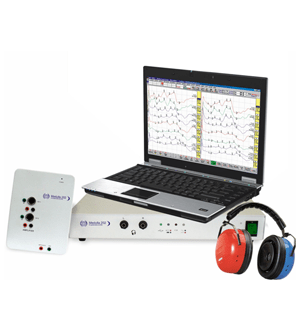 Recorders & Medicare Systems Pvt Ltd offers the Medulla 202, a superior-quality device designed with advanced technology for various tests such as BERA, MLR, LLR, and P300. With left/right comparison on a single screen, it provides a comprehensive analysis of waveforms. The device allows recording of up to 16 waves, enabling detailed examinations. Manual and auto Jewett-Marks on waveforms enhance accuracy. Users can program customized intensity settings, and the latency intensity graph aids in precise evaluations. Hot keys facilitate easy operation, and the device offers standard A4 size prints on laser or inkjet printers.
Recorders & Medicare Systems Pvt Ltd offers the Medulla 202, a superior-quality device designed with advanced technology for various tests such as BERA, MLR, LLR, and P300. With left/right comparison on a single screen, it provides a comprehensive analysis of waveforms. The device allows recording of up to 16 waves, enabling detailed examinations. Manual and auto Jewett-Marks on waveforms enhance accuracy. Users can program customized intensity settings, and the latency intensity graph aids in precise evaluations. Hot keys facilitate easy operation, and the device offers standard A4 size prints on laser or inkjet printers.
Medulla 201
Recorders & Medicare Systems Pvt. Ltd. presents the Medulla 201, an audiometer designed to meet global standards. With a latency-intensity graph, it enables accurate assessment of hearing thresholds. Patient safety is ensured through optical isolation, offering a secure testing environment. The device supports both automatic and manual test sequences, providing flexibility in testing protocols. With its high-quality materials and advanced technology, the Medulla 201 from RMS India stands out in the market, catering to the diverse needs of audiologists worldwide.
Audiometric Sound Proof Booth
Audiometric Sound Proof Booth by R K Acoustic Systems is a top-quality engineered sound isolation room designed exclusively for audiologists, doctors, hearing aid specialists, and clinics. This state-of-the-art booth creates an optimal environment for accurate and reliable hearing assessments, making it an essential tool for diagnostics, research, and clinical applications. With advanced noise reduction capabilities, this soundproof booth ensures minimal external noise interference during hearing tests, resulting in precise measurements. It is portable, compact, and ideal for mobile hearing screenings and clinics with limited space. The booth can be customized to meet specific requirements, providing a comfortable experience for patients. Featuring a double-walled structure, the booth maximizes soundproofing by minimizing sound leakage and incorporates whisper booth technology for low ambient noise levels. It also includes an integrated ventilation system for fresh air circulation. R K Acoustic Systems India offers a comprehensive range of audiology testing solutions, making it a go-to choice for healthcare professionals. Conduct hearing tests with confidence using this high-performance, portable, and customizable Audiometric Sound Proof Booth for the highest level of precision and reliability.
Conclusion
Audiometers are invaluable tools in the field of audiology, playing a crucial role in diagnosing and evaluating hearing impairments. From understanding the basics to exploring advanced techniques and applications, this guide has provided comprehensive insights into the world of audiometry.
Remember, accurate hearing assessment is essential for appropriate interventions and improved quality of life for individuals with hearing loss. Stay updated with the latest advancements in audiometric technology and ensure that your hearing healthcare practices align with industry standards.
